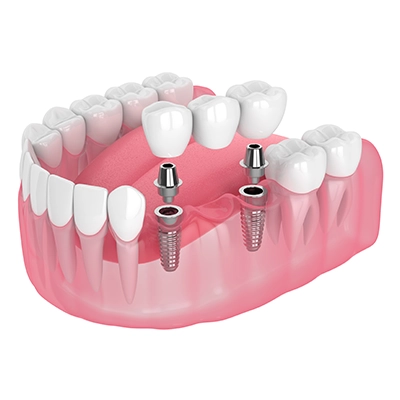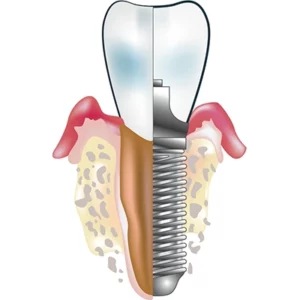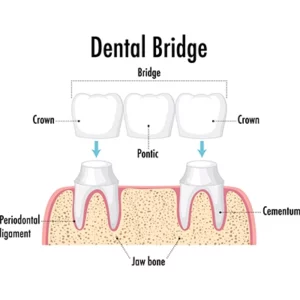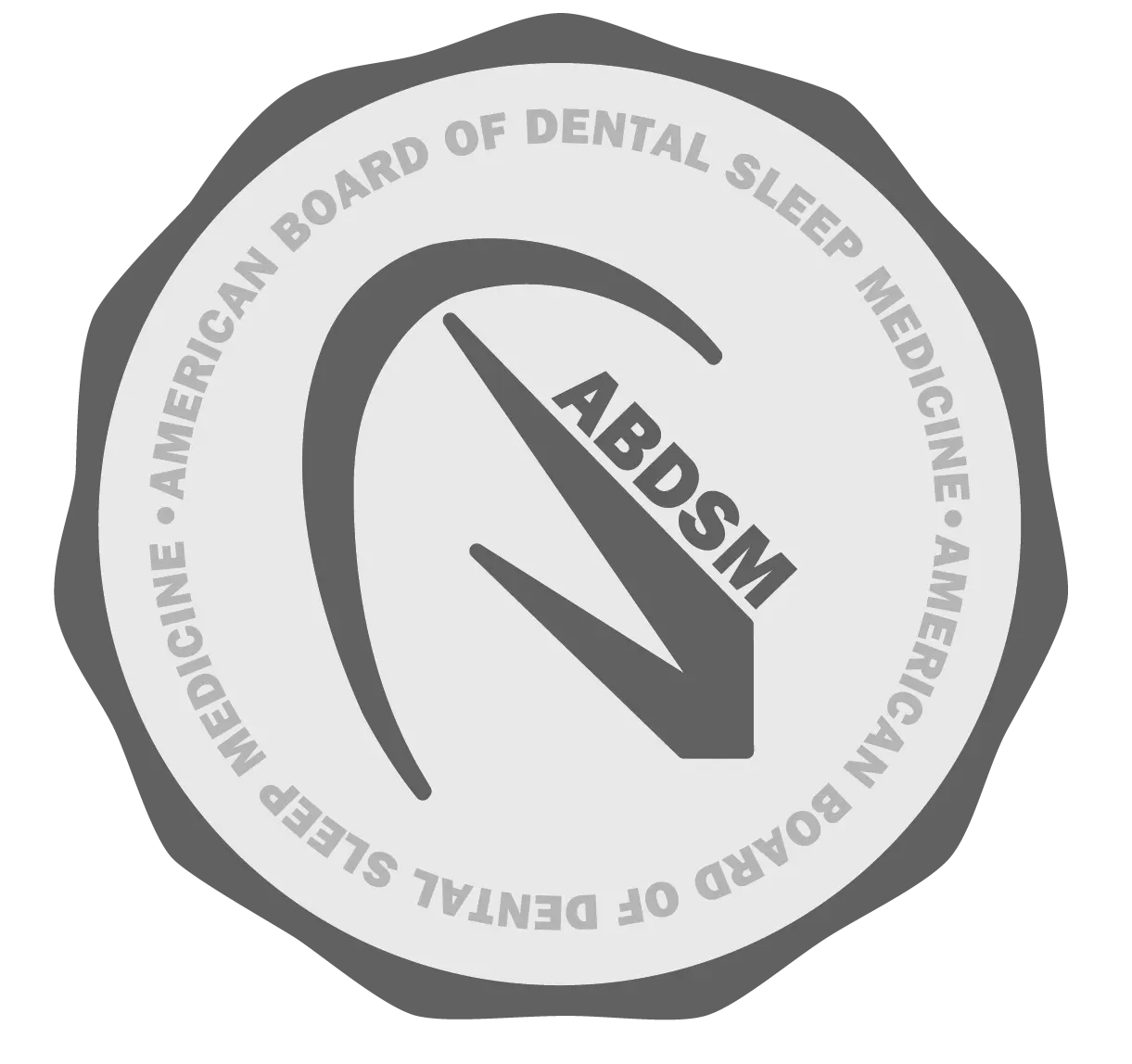Permanent teeth should last a lifetime with proper care and maintenance. Unfortunately, tooth loss is common among adults and can be caused by a variety of issues from genetics to environmental.
Regardless of the cause of missing teeth, there are several potential concerns, including:
- Impaired Chewing Function
- Speech Difficulties
- Changes in Facial Structure
- Shifting of Adjacent Teeth
- Bone Loss
- Increased Risk of Gum Disease
- Negative Impact on Self-Esteem
- Difficulty in Oral Hygiene
However, tooth replacement treatments offer several benefits, including:
- Restore Oral Function
- Preserve Jawbone Density
- Prevent Shifting of Teeth
- Enhance Aesthetic Appearance
- Prevent Further Tooth Loss
- Improve Speech
- Boost Self-Confidence
- Facilitate Proper Oral Hygiene
- Customized Solutions
Two of the most popular options are dental implants and dental bridges.
What is a Dental Implant?
The American Dental Association considers dental implants to be the gold standard of tooth replacement options. After all, dental implants replace both the root and the crown of the missing tooth, resulting in a stable, permanent replacement.
The implant itself is a titanium screw/post that is surgically inserted into the jawbone, effectively replacing the tooth root. A custom-made dental crown is attached to the screw/post, which creates a natural-looking and functioning tooth.
Patients who are missing three or more teeth in a row have the option of an implant-supported bridge. This involves placing an implant on either side of the gap. The bridge consists of a crown on either end and one or more pontics, or artificial teeth, between the crowns.
If you are considering dental implants, it’s important to understand the pros and cons:
Pros of Dental Implants
The pros of dental implants include:
- Natural Feel and Functionality
- Jawbone Preservation
- Longevity
- No Impact on Surrounding Teeth
- Improved Aesthetics
- Ease of Maintenance
- Stability
Cons of Dental Implants
There are several cons associated with dental implants as well, including:
- Complex Procedure
- Higher Initial Cost
- Potential for Complications
- Requirement for Adequate Bone Density
- Time-Consuming Process
- Potential for Sinus Issues
- Not Suitable for Everyone
What are Dental Bridges?
A dental bridge is a tooth replacement option that attaches to the natural teeth on either side of the gap with dental crowns. There are pontics, or artificial teeth, placed between the crowns to fill in the gap. A dental bridge is ideal when patients are missing several teeth in a row.
If you are considering getting a dental bridge to address your tooth loss, it’s important to consider the pros and cons.
Pros of Dental Bridges
The pros of dental bridges include:
- Affordability
- Faster Procedure
- Less Invasive Procedure
- No Need for Bone Grafting
- Suitable for Multiple Missing Teeth
- Ease of Maintenance
Cons of Dental Bridges
The cons of dental bridges include:
- Limited Lifespan
- Alteration of Healthy Teeth
- Weaker Bite
- Potential for Decay
- Aesthetic Considerations
- Impact on Adjacent Teeth
- Not Ideal for Jawbone Preservation
Factors Considered When Choosing Tooth Replacement Treatment
When making the decision between dental implants and dental bridges, there are several factors to keep in mind:
Cost
When considering cost, dental bridges will cost less upfront. However, they are not designed to last a lifetime like dental implants, so you’ll want to factor in future repair and/or replacement. Dental implants may cost more upfront, but will be less likely to require repair and/or replacement.
Durability
Dental implants are designed to last a lifetime, while dental bridges last up to about 20 years with proper care and maintenance.
Number Of Teeth
Dental implants are versatile and can be used for single-tooth replacements or extensive tooth loss. Dental bridges, on the other hand, are for patients who are missing multiple teeth in a row.
Overall Health
Certain medical conditions impact your body’s ability to heal. Since dental implants require invasive oral surgery and an extensive healing process, these may not be the best option for those with these conditions.
Time
Dental implants require a minimum of several months- and can take a year or more depending on your body’s ability to heal. However, dental bridges can usually be installed within two visits over a few weeks.
The choice between a dental bridge and an implant depends on various factors, and there is no one-size-fits-all solution. Consulting with a dental professional is crucial to determine the most suitable treatment based on individual needs, preferences, and oral health conditions. Both dental bridges and implants offer effective ways to restore a confident smile and oral functionality, and the decision should be made after careful consideration of the advantages and drawbacks of each option.
Dental Bridge vs. Implant FAQS
If you’re missing one or more permanent teeth, you have options. The two most popular are dental implants and dental bridges. Your dentist can help you understand these options. In the meantime, here are a few of the most frequently asked questions:
Can I switch from bridge to implant?
Yes, it is possible to switch from a bridge to an implant, but it will depend on individual circumstances and the health of surrounding teeth and gums.
Does a dental bridge feel natural?
While dental bridges can restore functionality and appearance, they may not feel as natural as dental implants due to the reliance on neighboring teeth for support.
When is a dental bridge not suitable?
Dental bridges may not be suitable for individuals with compromised adjacent teeth, extensive tooth loss, or specific medical conditions that hinder the healing process.











